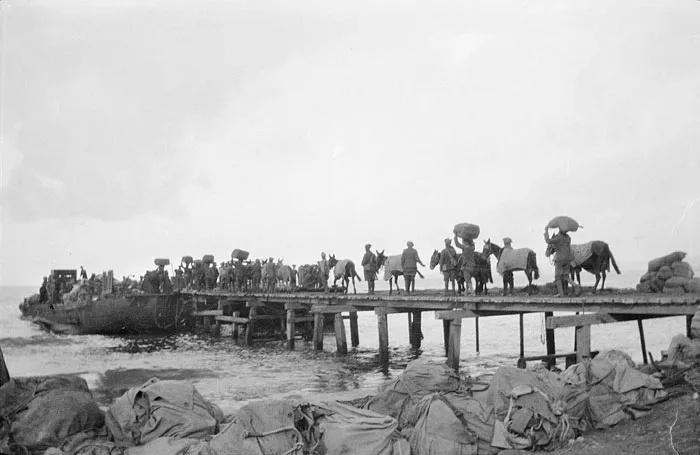December 20 holds significant historical importance in Australia, marked by a series of notable events that shaped the nation’s military, political, and cultural landscape. This article will explore these events in detail, providing context and analysis to understand their impact on Australian history.
What Happened on December 20 in Australian History?
Completion of ANZAC Evacuation from Gallipoli (1915)
One of the most pivotal moments in Australian military history occurred on December 20, 1915, when the evacuation of ANZAC forces from Gallipoli was completed. This operation marked the end of a campaign that had begun in April of the same year during World War I. The Gallipoli campaign aimed to secure a sea route to Russia and knock the Ottoman Empire out of the war.The evacuation was meticulously planned by Brigadier General C.B.B. White, who sought to minimize casualties while withdrawing troops under the cover of darkness. The successful evacuation was seen as a significant achievement amidst the overall failure of the campaign, which had resulted in heavy losses for Australian and New Zealand troops. Approximately 8,700 Australians lost their lives during the Gallipoli campaign, and the successful withdrawal allowed for a more organized retreat compared to other military operations at the time.The ANZAC legacy established during this campaign has continued to influence Australian national identity, commemorated annually on ANZAC Day, April 25. The events at Gallipoli are often viewed through the lens of bravery and sacrifice, contributing to a burgeoning sense of national pride among Australians.
Second Plebiscite on Military Conscription (1917)
On December 20, 1917, Australia held its second plebiscite regarding military conscription during World War I. Prime Minister William Morris Hughes advocated for conscription to bolster the Australian Imperial Force (AIF), which was suffering from heavy casualties and declining numbers. The first plebiscite had been held in October 1916 and was defeated, leading Hughes to call for a second vote.The plebiscite on December 20 was met with considerable opposition from various segments of society, including trade unions and anti-conscription activists who argued against compulsory military service. The result was again a defeat for Hughes, with a significant portion of the electorate voicing their disapproval of conscription policies. This event highlighted deep divisions within Australian society regarding participation in the war and raised questions about national identity and civic duty.The failure of both plebiscites had lasting implications for Australian politics and society. It led to increased tensions between different social groups and ultimately contributed to Hughes losing support within his party and among voters.
Hubert Wilkins’ Flight Over Antarctica (1928)
Another significant event occurred on December 20, 1928, when Australian explorer Hubert Wilkins made history by completing the first flight over Antarctica in his Lockheed Vega aircraft named San Francisco. This pioneering flight was part of Wilkins’ broader efforts to explore uncharted territories and conduct scientific research in extreme environments.Wilkins’ expedition aimed to gather information about the Antarctic landscape and its potential for future exploration and research. His successful flight not only demonstrated advancements in aviation technology but also contributed valuable data about Antarctica’s geography and climate.Wilkins is remembered as one of Australia’s most notable explorers, whose work laid the groundwork for future scientific expeditions to Antarctica. His contributions have been recognized by various institutions dedicated to polar research.
Death of Earle Page (1961)
On December 20, 1961, Earle Page, who served as Australia’s eleventh Prime Minister from April to August 1939, passed away. Page was a prominent figure in Australian politics and played a crucial role in shaping economic policy during his tenure as Treasurer.Earle Page was known for his advocacy for rural interests and his commitment to developing Australia’s agricultural sector. His leadership during a time of economic uncertainty helped stabilize Australia’s finances post-World War II. Following his death, Page was honored for his contributions to public service and his influence on Australian politics.
Paul Keating Becomes Prime Minister (1991)
A landmark political event took place on December 20, 1991, when Paul Keating became Australia’s twenty-fourth Prime Minister after winning a leadership challenge against Bob Hawke within the Labor Party. Keating had previously served as Treasurer under Hawke’s administration and was known for his economic reforms that aimed at modernizing Australia’s economy.Keating’s ascension marked a significant shift in leadership style and policy direction. He focused on issues such as reconciliation with Indigenous Australians, economic reform, and Australia’s role in Asia-Pacific relations. His tenure is often characterized by bold initiatives that aimed to reshape Australia’s economic landscape.Keating’s leadership style was assertive and sometimes controversial; he is remembered for his passionate speeches and commitment to progressive policies that sought to address social inequalities within Australia.
Conclusion
December 20 is a date rich with historical significance in Australia, reflecting key moments that have shaped its national narrative—from military endeavors during World War I to pivotal political changes in modern governance. Each event not only marks a point in time but also contributes to understanding how these moments have influenced contemporary Australian society.As we reflect on these historical events, it is essential to recognize their lasting impact on national identity, political discourse, and social values within Australia. The stories behind these dates remind us of the complexities involved in nation-building and the ongoing journey toward understanding Australia’s past while shaping its future.
Related Topics:

